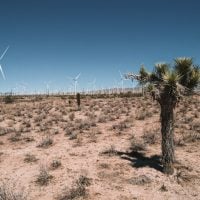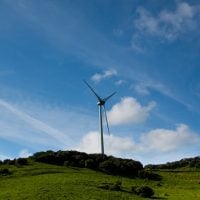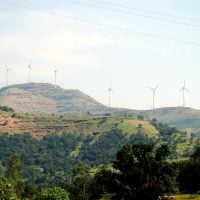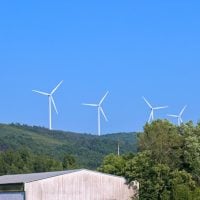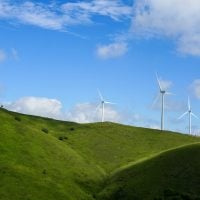The transition to clean energy is a pressing necessity for island nations, which are often disproportionately affected by climate change. These nations, surrounded by vast oceans, face unique challenges such as rising sea levels, extreme weather events, and limited natural resources. The reliance on imported fossil fuels not only exacerbates their vulnerability to global energy price fluctuations but also contributes to environmental degradation.
As a result, many island nations are increasingly recognizing the importance of shifting towards renewable energy sources such as solar, wind, and geothermal power. This transition is not merely an environmental imperative; it is also a pathway to energy independence, economic resilience, and sustainable development. In recent years, the global community has begun to pay closer attention to the clean energy needs of island nations.
Initiatives aimed at promoting renewable energy technologies and sustainable practices have gained momentum, driven by the urgent need to mitigate climate change impacts. The clean energy transition in these regions is not just about adopting new technologies; it involves a comprehensive approach that includes policy reform, capacity building, and community engagement. By harnessing local resources and fostering innovation, island nations can create a sustainable energy future that benefits both their economies and their ecosystems. Are You Working on Solar Innovation or Clean Energy Access? Join us to receive updates.
Key Takeaways
- Island nations are increasingly transitioning to clean energy to reduce reliance on fossil fuels and combat climate change.
- Top donors play a crucial role in funding clean energy transition in island nations, providing financial support and technical expertise.
- Global efforts, including initiatives by international organizations, are aimed at supporting clean energy projects in island nations.
- Key donors, such as governments, multilateral organizations, and private companies, have made significant contributions to clean energy transition in island nations.
- Clean energy funding has the potential to positively impact island nations’ economies and environments by creating jobs and reducing carbon emissions.
Importance of Top Donors in Funding Clean Energy Transition
The role of top donors in funding the clean energy transition in island nations cannot be overstated. Financial support from international organizations, governments, and philanthropic entities is crucial for enabling these nations to invest in renewable energy infrastructure and technology. Many island nations lack the financial resources and technical expertise required to implement large-scale clean energy projects independently.
Therefore, external funding becomes a lifeline that allows them to leapfrog traditional energy systems and embrace sustainable alternatives. Moreover, top donors often provide not only financial resources but also technical assistance and capacity-building initiatives. This holistic approach ensures that island nations are equipped with the knowledge and skills necessary to manage and maintain clean energy systems effectively.
For instance, partnerships between donor organizations and local governments can lead to the development of tailored solutions that address specific energy needs while fostering local job creation. By investing in human capital alongside infrastructure, donors can help ensure the long-term sustainability of clean energy initiatives in these vulnerable regions.
Global Efforts to Support Clean Energy in Island Nations

Global efforts to support clean energy in island nations have gained significant traction in recent years. Various international agreements, such as the Paris Agreement, emphasize the need for climate action and the transition to renewable energy sources. These frameworks have catalyzed funding initiatives aimed at supporting vulnerable countries, particularly small island developing states (SIDS), in their quest for sustainable energy solutions.
Organizations like the United Nations Development Programme (UNDP) and the Global Environment Facility (GEF) have launched programs specifically designed to assist island nations in developing their clean energy capacities. In addition to multilateral efforts, numerous bilateral agreements between countries have emerged to facilitate knowledge sharing and technology transfer. For example, countries with advanced renewable energy technologies often collaborate with island nations to provide training and resources that enable them to harness their renewable potential effectively.
These global partnerships are essential for fostering innovation and ensuring that island nations can access the latest advancements in clean energy technology.
The Role of International Organizations in Facilitating Clean Energy Funding
International organizations play a pivotal role in facilitating clean energy funding for island nations. They act as intermediaries between donor countries and recipient nations, ensuring that funds are allocated efficiently and effectively. Organizations such as the World Bank and the Asian Development Bank have established dedicated funds aimed at supporting renewable energy projects in developing countries, including island nations.
These institutions not only provide financial resources but also offer technical expertise and policy guidance to help countries navigate the complexities of clean energy implementation. Furthermore, international organizations often conduct research and analysis to identify the most pressing energy needs of island nations. By assessing local contexts and challenges, they can tailor funding programs that align with national priorities and capacities.
This targeted approach enhances the likelihood of project success and sustainability. Additionally, these organizations frequently engage in capacity-building initiatives that empower local stakeholders to take ownership of clean energy projects, fostering a sense of community involvement and commitment.
Key Donors and their Contributions to Clean Energy Transition
Several key donors have emerged as leaders in supporting the clean energy transition in island nations. The Green Climate Fund (GCF), established under the UN Framework Convention on Climate Change (UNFCCC), has been instrumental in providing financial assistance for climate-related projects worldwide. The GCF has allocated significant resources specifically for renewable energy initiatives in SIDS, enabling them to invest in solar farms, wind turbines, and other sustainable technologies.
Another notable contributor is the European Union (EU), which has committed substantial funding through its various programs aimed at promoting renewable energy and climate resilience in developing countries. The EU’s support often includes not only financial resources but also technical assistance and capacity-building efforts that empower local communities to engage in clean energy projects actively. Additionally, philanthropic organizations such as the Rockefeller Foundation have made significant investments in innovative clean energy solutions tailored for island contexts, further diversifying the funding landscape.
Impact of Clean Energy Funding on Island Nations’ Economies and Environments

The impact of clean energy funding on island nations’ economies and environments is profound. By investing in renewable energy infrastructure, these nations can reduce their dependence on imported fossil fuels, leading to significant cost savings over time. This shift not only enhances energy security but also creates new economic opportunities through job creation in the renewable energy sector.
For instance, solar panel installation and maintenance require skilled labor, which can stimulate local employment and contribute to economic diversification. Environmentally, the transition to clean energy helps mitigate the adverse effects of climate change by reducing greenhouse gas emissions. Island nations that adopt renewable technologies can protect their fragile ecosystems while promoting sustainable tourism and agriculture practices.
For example, transitioning from diesel generators to solar power can significantly decrease air pollution levels, improving public health outcomes for local communities. Ultimately, clean energy funding empowers island nations to pursue sustainable development pathways that benefit both their economies and their environments.
Challenges and Opportunities in Implementing Clean Energy Projects in Island Nations
While the potential benefits of clean energy projects are substantial, several challenges must be addressed for successful implementation in island nations. One significant hurdle is the limited access to financing for large-scale projects due to perceived risks associated with investing in small economies. Additionally, bureaucratic hurdles and regulatory barriers can slow down project development timelines, making it difficult for stakeholders to realize their goals promptly.
However, these challenges also present opportunities for innovation and collaboration. For instance, leveraging technology such as microgrids can provide decentralized solutions that enhance energy access while minimizing infrastructure costs. Furthermore, fostering partnerships between local governments, private sector actors, and international donors can create synergies that drive project success.
By working together to overcome obstacles, stakeholders can develop creative solutions that not only address immediate needs but also lay the groundwork for long-term sustainability.
Case Studies of Successful Clean Energy Projects Supported by Top Donors
Several case studies illustrate the successful implementation of clean energy projects supported by top donors in island nations. One notable example is the solar power initiative in Fiji funded by the Green Climate Fund. This project involved installing solar panels on schools and community centers across remote islands, providing reliable electricity while reducing reliance on diesel generators.
The initiative not only improved access to electricity but also empowered local communities by involving them in project planning and implementation. Another successful case is found in the Caribbean nation of Dominica, where a geothermal power project funded by the World Bank has transformed the country’s energy landscape. By harnessing its geothermal resources, Dominica aims to generate a significant portion of its electricity from renewable sources while reducing greenhouse gas emissions.
This project has not only enhanced energy security but has also positioned Dominica as a regional leader in sustainable energy development.
Future Outlook for Clean Energy Funding in Island Nations
The future outlook for clean energy funding in island nations appears promising as global awareness of climate change continues to grow. With increasing commitments from governments and international organizations to support sustainable development goals (SDGs), there is potential for enhanced financial flows into renewable energy projects. Additionally, advancements in technology are making clean energy solutions more accessible and affordable than ever before.
However, sustained efforts will be required to ensure that funding reaches those who need it most. Continued advocacy for increased donor engagement and innovative financing mechanisms will be essential for overcoming existing barriers. Furthermore, fostering collaboration among stakeholders at all levels will be crucial for creating an enabling environment that supports successful clean energy transitions.
Strategies for Strengthening Partnerships between Donors and Island Nations
To strengthen partnerships between donors and island nations, several strategies can be employed. First, establishing clear communication channels is vital for ensuring that both parties understand each other’s needs and expectations. Regular dialogue can help build trust and facilitate collaboration on project design and implementation.
Second, involving local communities in decision-making processes can enhance project ownership and sustainability. By engaging stakeholders from the outset, donors can ensure that projects are tailored to local contexts and priorities. Additionally, providing training and capacity-building opportunities can empower local actors to take an active role in managing clean energy initiatives.
Finally, leveraging technology platforms for knowledge sharing can foster collaboration among donors, governments, and civil society organizations. By creating networks that facilitate information exchange on best practices and lessons learned, stakeholders can collectively advance clean energy transitions in island nations.
The Path Forward for Clean Energy Transition in Island Nations
The path forward for clean energy transition in island nations is filled with both challenges and opportunities. As these regions grapple with the impacts of climate change while striving for sustainable development, the importance of collaborative efforts cannot be overstated. Top donors play a critical role in providing financial resources and technical assistance necessary for implementing successful clean energy projects.
By fostering partnerships among governments, international organizations, private sector actors, and local communities, stakeholders can create a robust framework for advancing renewable energy initiatives. As we look ahead, it is essential to remain committed to supporting island nations on their journey toward a sustainable future powered by clean energy solutions. Through collective action and innovative approaches, we can help ensure that these vulnerable regions thrive amidst a changing climate while contributing positively to global sustainability efforts.

